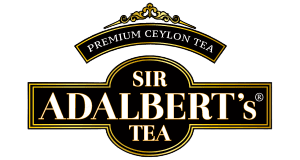
Sri Lankan tea – what is it and what does it taste like?
In the world of teas, where well-known names reign supreme, there is a pearl appreciated by true connoisseurs for its authenticity and unparalleled quality: Sri Lankan teaWhat makes it so special? It's a story about the careful hand-harvesting of the most delicate leaves, the traditional production process, and the extraordinary variety of flavors that depend on where it was grown.
In this guide, we'll reveal some of the secrets. Discover with us what lies behind this name and why its taste is so unique.
Contents
What is Sri Lankan tea?
Sri Lankan tea is a tea grown exclusively in Sri Lanka., which is much better known by its historical and commercial name: Ceylon tea.
In practice, both terms refer to the same, globally valued product. The difference in naming is purely historical.
- Sri Lankan tea: This is the geographically correct name because it comes from the current name of the country – Sri Lanka.
- Ceylon tea: This historic and incredibly popular brand name has become a global synonym for quality. The name comes from Ceylon, the former name of Sri Lanka (used until 1972).
The conclusion is simple: Whether you see "Sri Lankan" or "Ceylon" on the packaging, we're talking about the same, exceptional tea. The name "Ceylon" is simply more commonly used due to its strong tradition and recognition.
What does Sri Lankan tea taste like?
The taste of Sri Lankan tea (Ceylon) is varied and depends mainly on the growing region in Sri Lanka. It is characterized by a wide spectrum, from light, citrus notes in high-mountain teas to strong and full-flavored infusions from the lowlands.
What influences the flavor of Sri Lankan tea? Region, terrain, and weather:
- Nuwara Eliya (high mountain): The tea is very delicate, light and subtle.
- Dimbula (middle mountain): The infusion is refreshing, with balanced strength and rich aroma.
- Uva (eastern slopes): It has a distinctive, slightly exotic and expressive taste.
- Ruhuna (lowland): It produces a strong, full-flavored and dark infusion, perfect for tea with milk.

How is Sri Lankan tea produced?
The production of Sri Lankan (Ceylon) tea is a precise, traditional process:
- Step 1: Harvest – only the youngest and best parts of the bush are picked by hand – the two upper leaves and the bud.
- Step 2: Wilting – the collected leaves are allowed to wither so that the water evaporates from them.
- Step 3: Oxidation (fermentation) – the leaves mature in a humid room, reacting with oxygen. They acquire a copper color and their characteristic flavor.
- Step 4: Drying – The oxidation process is interrupted by drying the leaves in hot air. This preserves their flavor and gives them their black color.
- Step 5: Sorting – Finally, the ready, dry tea is sorted according to leaf size and packaged.
What are the properties of Sri Lankan tea?
The properties of Sri Lankan tea depend mainly on whether it is black tea (fully oxidized) or green tea (in which this process has been stopped).
Sri Lankan black tea
- Stimulant and mental properties: Contains caffeine, which boosts energy and improves concentration. L-theanine makes stimulation balanced and does not cause irritation.
-
Properties for the body: It is rich in antioxidants (theaflavins) that support heart health, may help regulate cholesterol and strengthen immunity.
- Taste: Typically crisp and vibrant, often with notes of citrus or spice. Produces a brew with a deep copper color.
Sri Lankan green tea
- Stimulant properties: It has a milder stimulating effect than black tea because it usually contains less caffeine.
- Properties for the body: It is a treasure trove of catechins (mainly EGCG), i.e. antioxidants that support metabolism, body cleansing processes and have a strong antioxidant effect.
- Taste: The flavor is milder, more herbal and grassy. The infusion has a light, straw-colored or greenish color.
Choose your Sri Lankan tea at Adalbert's
At Adalbert's, you'll find a wide selection of authentic Sri Lankan teas. Whether you prefer the convenience of tea bags or the ritual of brewing loose-leaf tea, our selection will meet your expectations. We offer both classic black teas and aromatic blends with fruit and flowers. Each product is a guarantee of freshness and flavor, confirmed by the Ceylon Lion symbol.






Leave a comment
This site is protected by hCaptcha and the hCaptcha Privacy Policy and Terms of Service apply.